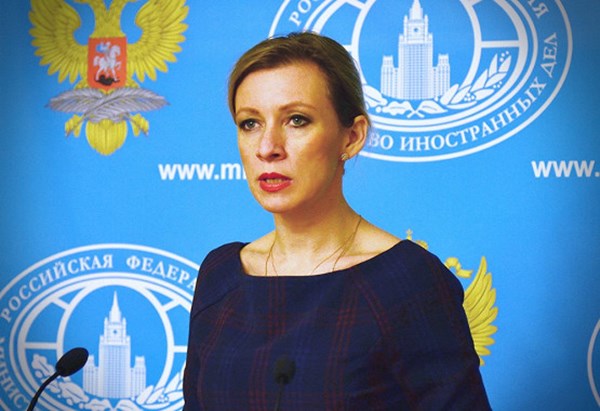Kremlin refuses to accept NATO and EU response to Russia’s demands for security guarantees
Russia cannot accept the response of the European Union and NATO to the letter sent by Foreign Minister Sergey Lavrov about "security proposals". The Russian Foreign Ministry said that such "collective response" looks like a "coverup." In addition, Lavrov’s letter was not addressed to Stoltenberg and Borrell, said the press secretary of the Russian Foreign Ministry Maria Zakharova.
She recalled that Lavrov sent his letter to the foreign ministers of 37 countries- the United States, Canada and European countries, and it was emphasized that Russia expects a "detailed response at the country level."
"Instead, we got a reply from Jens Stoltenberg and Josep Borrell, whom we have not addressed. Such a step can only be described as a manifestation of diplomatic incivility and disrespect for our request," Zakharova said.
The representative of the Russian Foreign Ministry noted that the OSCE and Russia-NATO documents, which enshrine the principle of indivisibility of security, were signed by the heads and governments of the respective countries.
"Countries participate in a national capacity in the OSCE, and it is in this capacity that they have pledged not to strengthen their security at the expense of the security of others," she said.
Zakharova stressed that because of this, Russia cannot accept the "collective response" which looks like a "coverup" and expects a "detailed reaction to the question posed by us from each addressee."
According to Zakharova, in the letters received by Russia from Stoltenberg and Borrell, there is no substantive response to Lavrov's message. "Instead, we are invited to enter into a dialogue to strengthen security."
The Russian Ministry of Foreign Affairs proposed to NATO and the United States to conclude an agreement on the so-called security guarantees, demanding the refusal of further expansion of the alliance and Ukraine's accession to it.
In early February, Putin asked NATO to ensure Ukraine's security by not accepting it into the Alliance.
On February 10, Putin said it was necessary to get legally binding "security guarantees" from the United States and NATO.
NATO Secretary General Jens Stoltenberg sent a proposal to Russian Foreign Minister Sergey Lavrov with an appeal to continue the dialogue within the framework of the NATO-Russia Council. Stoltenberg stressed that Russia has a choice: either stop its aggression against Ukraine or prepare for tough sanctions.
On the same day, the Russian Federation received a collective letter from the European Union. The document signed by the foreign ministries of the 27 countries was handed over to the Russian Permanent Representative to the EU, Vladimir Chizhov. The EU called on Russia to stop amassing troops around Ukraine, as well as in Belarus.
Earlier, Russian Foreign Minister Sergey Lavrov said that a collective letter from the EU countries would lead to a breakdown in the negotiation process.
